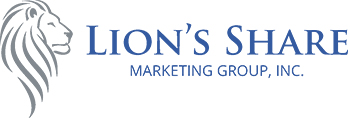
Chances are, if you’re a small business, you don’t know your market as well as you could, and should. You’re probably operating on instinct, based on conversations with a small number of clients. But you haven’t expended extensive time and resources researching existing and potential customers.
Finding out what your customers want is important for any business: How can you possibly provide a solution, if you don’t fully understand their unique pain? Why do they need this product or service? What have they used in the past? What are their expectations around working with your company?
Equally important is understanding what your customers really think of you. Why did they select your company’s service or product? What were their first impressions and how did they evolve through the sales process? How do they interpret your messaging and communications? How did you inspire confidence in the customer?
When you know exactly how your signals are received you can fine tune them accordingly. Maybe the tone of your social media is too strident; maybe customers are turned off by a particularly inept salesperson. Maybe they perceive the competition as much more established and professional. Maybe your proposal didn’t go far enough. A customer may have chosen not to buy your product simply because they didn’t like the way your slide presentation looked. If these types of issues are costing you sales, you’d want to know because they can easily be addressed.
Likewise, if a customer is going to give you a very positive testimonial, that, too, is useful information. What made your company stand out? How did your value proposition meet your customer’s needs? You’ll likely want to use some of this data in your marketing communications. Perhaps you could also ask the happy customer to participate in a case study. Regardless, you’ll know exactly what is working well so you can continue doing it.
Ultimately the best way to get these answers is by conducting a win/loss or post-decision interview, designed for onboarding customers or customers who have decided to find their product or service elsewhere. Ideally this interview is conducted by an independent party for the most unbiased assessment and most efficient analysis of data. People often mistake the win/loss interview as a customer survey but it’s a much more detailed and focused look at customer behavior. And the results are almost always incredibly illuminating. What you don’t know about your market really can hurt you.
Are you ready to know what your customers are thinking? It’s time to start asking these questions. We guarantee you’re in for some surprises.
For more information on how Lion’s Share can help you get in touch with your core audience, contact us today.
